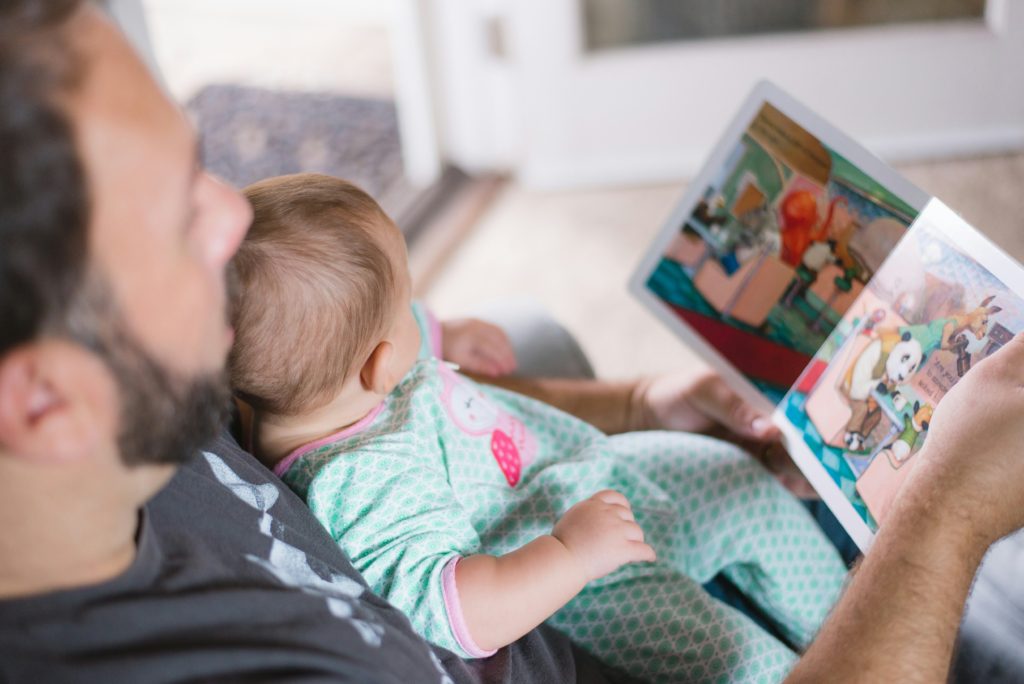
Mindful Parenting: Fostering Wellness in Every Stage of Childhood
Every phase of childhood presents unique challenges and rewards. As parents, it’s important to be mindful of each stage, fostering wellness and positive growth at every turn. Here are some […]
Every phase of childhood presents unique challenges and rewards. As parents, it’s important to be mindful of each stage, fostering wellness and positive growth at every turn. Here are some insights on how to do just that.
Mindful parenting involves being present, showing empathy and understanding, setting limits, and fostering a healthy atmosphere for growth. This approach can promote wellness and assist children in navigating each stage of childhood.
Infancy Stage (0-2 years)
Promoting wellness during infancy involves meeting the baby’s basic needs for love, food, sleep, and comfort. Regularly holding, cuddling, and talking soothingly can instill a sense of safety and love. A nutritious diet ensures that the infant gains the necessary weight and nutrients for healthy brain development. Implementing routines for meals, naps, and bedtime can also create predictability and stability.
Mindful parenting during this stage requires moment-to-moment attention and responding to the baby’s needs. This involves constantly observing, interpreting, and reacting to the baby’s signals, like crying or restlessness, with sensitivity and immediate care. Skin-to-skin contact and gentle rocking can soothe a fussy baby, while reading or singing to them can enhance their auditory development and emotional bond. This may be exhausting mentally and physically but the strong bond and attachment formed as a result is worth it.
Toddlerhood (2-4 years)
With the onset of mobility and independence, wellness centers around physical safety, emotional support, and cognitive stimulation. Childproofing homes, maintaining a healthy diet, and ensuring regular physical play can address safety and health.
At this stage, children experience a roller-coaster of emotions, from joy to frustration. They need empathy and reassurance, showing validation for their feelings and establishing limits on behavior. Encouraging language development, providing educative play activities, or reading together can aid cognitive development. Introducing simple chores and routines can foster a sense of responsibility and achievement.
Mindfulness here means tuning in to your child’s world, staying patient with tantrums, appreciating their explorations, and responding with understanding and guidance. Acknowledging their small accomplishments and providing choices can empower them and build confidence. You may find yourself feeling bored or anxious playing the same games your child wants to play over and over but being mindful each moment can help. Focusing on how your child responds to their environment can help you from thinking about all the other things you may want or need to do and gaining a deep appreciation and awe for all that your child is learning to do through play.
Early Childhood (5-7 years)
This stage focuses on emotional well-being, social skills, and academic readiness. Parents can support emotional wellness by continuing to validate feelings and teaching coping skills such as deep breathing or quiet time.
Teaching social skills like sharing, respecting others, and resolving conflicts peacefully can promote a healthy social life. Also, parents can foster academic readiness by promoting literacy and numeracy skills, curiosity, and the love of learning. Engaging in activities like reading together, playing educational games, and encouraging creative expression through arts and crafts can stimulate intellectual growth.
Mindfulness at this stage involves active listening, modeling behavior, and providing a supportive environment for learning and exploration. Being involved in their school activities and celebrating their academic and personal milestones can boost their self-esteem and enthusiasm for learning.
Middle Childhood (8-12 years)
Children this age develop a perception of themselves and their place in the world. Thus, promoting self-esteem, academic skills, and coping strategies are crucial elements of wellness.
Encourage open discussions about thoughts and feelings. Promote positive self-esteem by acknowledging efforts, not just outcomes, and reinforcing strengths. Make available resources and opportunities that enhance literacy, numeracy, problem-solving, and critical thinking. Teach coping strategies for dealing with stress, failure, or peer pressure. Engaging in family discussions and problem-solving can help children develop their reasoning and communication skills.
Mindfulness at this stage involves careful observation, providing feedback, open communication, and emotional support. Encouraging hobbies and interests outside of academics can provide a balanced and fulfilling life experience.
Adolescence (13-18 years)
Wellness in adolescence consists of emotional resilience, healthy body image, independence, and decision-making skills. Parents should foster a trusting relationship, promoting open discussion about sensitive topics like body changes, sexuality, drugs, or mental health.
Promote a positive body image and a healthy lifestyle, with a balanced diet and regular exercise. Encourage decision-making and problem-solving, allowing your teen to be involved in setting rules and consequences within reason. Supporting their pursuits and respecting their opinions can foster a sense of autonomy and self-worth.
Mindfulness includes respecting their need for privacy, letting them express themselves, and supporting them without judgment. Encourage positive peer relationships and provide guidance on managing stress and pressures from social media and academic expectations.
Conclusion
Fostering wellness in every stage of childhood is about being tuned in to the child’s needs, being a source of comfort and enrichment, and guiding the child towards becoming a wholesome individual. It calls for patience, flexibility, resilience, and most importantly, unlimited love. Remember, no one is a perfect parent, but by being mindful, we can all become the best parents we can be. Your love, time, and attention are the most important wellness tools you can provide.
Main Takeaway: Mindful parenting involves being present, empathetic, and supportive through every stage of childhood. By fostering a healthy, nurturing environment, parents can promote overall wellness and positive growth for their children.
Written by AI & Reviewed by Clinical Psychologist: Yoendry Torres, Psy.D.
Disclaimer: Please note that some blog posts may contain affiliate links and Sana Network will earn a commission if you purchase through those links at no additional cost to you. We use all of the products listed and recommend them because they are companies or products that I have found helpful and trustworthy. Our website is supported by our users.
